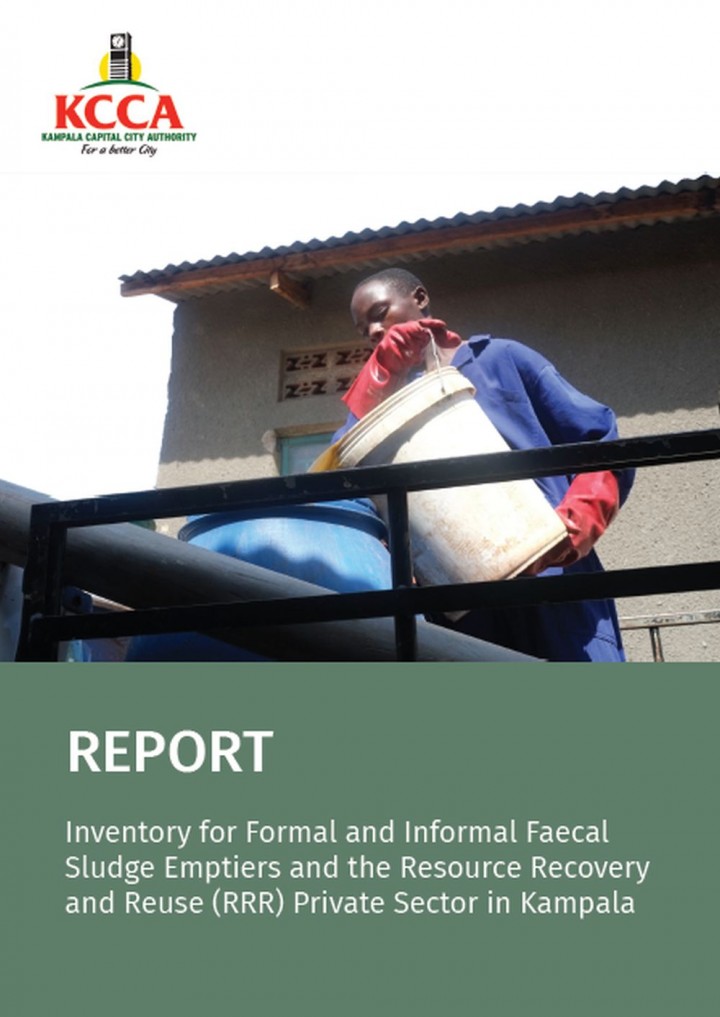Inventory for Formal and Informal Faecal Sludge Emptiers and the Resource Recovery and Reuse (RRR) Private Sector in Kampala Musabe, K. (2015)
In Kampala, about 90% of the people rely on on-site sanitation solutions, which cannot be considered “improved” or “acceptable” in most cases: too many households share one toilet; pit-latrines are unlined, filled with solid wastes, and hard to access for emptying services, ultimately leading to filled-up facilities that are either abandoned or directly emptied into the environment, posing health and environmental risks for the city and its people. It is estimated that 900m3 of faecal sludge (FS) is generated in Kampala every day, whereas only 390m3 are collected, representing a collection rate of 43% (KCCA/BMGF, 2014).
The GIZ Reform of the Urban Water and Sanitation Sector (RUWASS) Programme has a strong focus on supporting private sector engagement in the urban sanitation sector while at the same time strengthening the regulatory framework and governing institutions such as Kampala Capital City Authority (KCCA). The interventions towards improved sanitation in Kampala also draw on the results of the Resource Recovery & Safe Reuse (RRR) Project Phase I, funded by the Swiss Development Cooperation (SDC) between 2011 and 2014.
Phase II of the RRR Project is based on a co-funding agreement between SDC and the German Government (German Development Cooperation, GDC), implemented by GIZ RUWASS. It will involve piloting of different sanitation interventions by KCCA over the period of May 2016 to May 2017 in five pre-selected parishes in Kampala.
The specific objective of this assignment was to develop an Inventory of Faecal Sludge Emptiers and Resource Recovery and Reuse (RRR) Practitioners (both formal and informal) in Kampala in order to establish an overview of the current private sector set-up. The methodology for executing the assignment involved a literature review, stakeholder consultations with key institutions such as KCCA, National Water and Sewerage Corporation (NWSC) and National Environment Management Authority (NEMA). Interviews were also held with 7 private cesspool providers, 4 Gulper operators1 who own tricycles, 4 manual emptiers and 2 RRR entrepreneurs.This was followed by data analysis and report writing.
Bibliographic information
Musabe, K. (2015). Inventory for Formal and Informal Faecal Sludge Emptiers and the Resource Recovery and Reuse (RRR) Private Sector in Kampala Kampala Capital City Authority
Filter / Tags
Food security and productive sanitation (WG5)English
Downloads
Inventory for Formal and Informal Faecal Sludge Emptiers and the Resource Recovery and Reuse (RRR) Private Sector in Kampala
Type: application/pdf
Size: 4.27 MB

